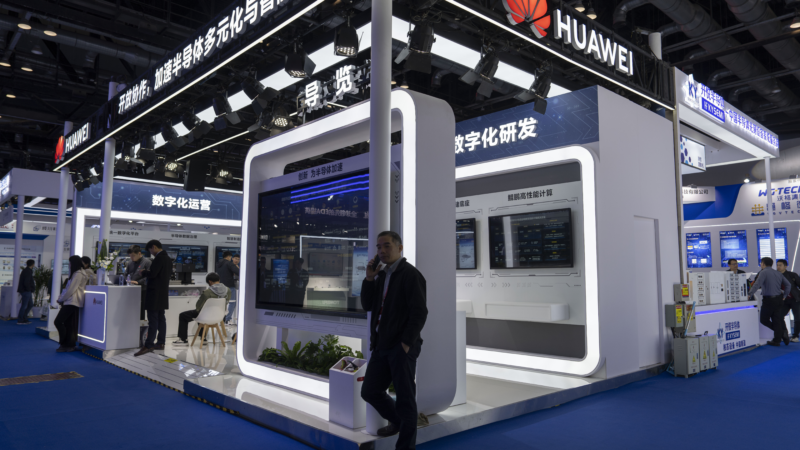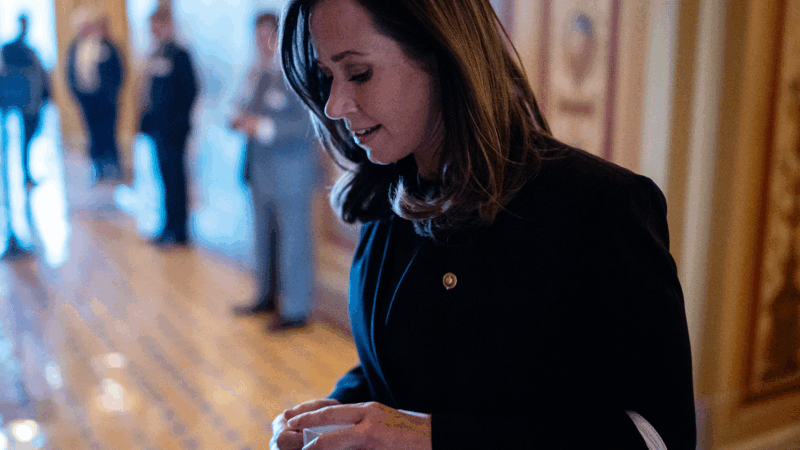Trump mulls semiconductor levies after lifting reciprocal tariffs on electronics
The Trump administration is considering new semiconductor tariffs, after the White House exempted certain electronics from reciprocal tariffs.
“We are taking a look at Semiconductors and the WHOLE ELECTRONICS SUPPLY CHAIN in the upcoming National Security Tariff Investigation,” Trump posted on social media.
Kevin Hassett, director of the National Economic Council, echoed Trump and told CNN that the administration is launching an investigation into semiconductors under Section 232 of the Trade Expansion Act of 1962. That section of trade law allows the president, after an investigation, to restrict imports of products that are seen as critical to U.S. national security.
“Semiconductors are the key, important part of a lot of defense equipment,” Hassett told CNN’s Jake Tapper on Sunday. “And there’s going to be a semiconductor 232 that studies those things carefully and decides what has to be on-shored in order to protect America.”
Hassett compared these possible semiconductor tariffs to the current 25% tariffs on steel and aluminum — which Trump also issued under Section 232. To Hassett, the fact that semiconductors aren’t manufactured in the U.S. is a national security issue.
“It actually is the case that it’s a very uncomfortable amount of Chinese input in our actual weapons systems,” Hassett said on CNN.
The prospect of additional tariffs on semiconductors, an essential part of many products from cars to cell phones, comes only days after U.S. Customs and Border Protection lifted what the administration calls “reciprocal” tariffs on certain electronics, including smartphones and computers. Friday’s action lifted steep tariffs on most technology imports, though Chinese technology continues to face a 20% “fentanyl” tariff — what the administration describes as a punitive measure over the nation’s role in the international drug trade.
Commerce Secretary Howard Lutnick told ABC News that these electronic tariff exemptions are only temporary — because they will soon be replaced by the yet-to-be-announced semiconductor tariff.
“What [Trump] is doing is he’s saying they’re exempt from the reciprocal tariffs, but they’re included in the semiconductor tariffs, which are coming in probably a month or two,” Lutnick told ABC News’ Jonathan Karl. “All those products are going to come under semiconductors, and they’re going to have a special-focus type of tariff to make sure that those products get re-shored.”
China is America’s top source of electronic products, according to the U.S. International Trade Commission, followed by Mexico, Taiwan, Vietnam and Malaysia.
Bill making the Public Service Commission an appointed board is dead for the session
Usually when discussing legislative action, the focus is on what's moving forward. But plenty of bills in a legislature stall or even die. Leaders in the Alabama legislature say a bill involving the Public Service Commission is dead for the session. We get details on that from Todd Stacy, host of Capitol Journal on Alabama Public Television.
Baz Luhrmann will make you fall in love with Elvis Presley
The new movie is made up of footage originally shot in the early 1970s, which Luhrmann found in storage in a Kansas salt mine.
My doctor keeps focusing on my weight. What other health metrics matter more?
Our Real Talk with a Doc columnist explains how to push back if your doctor's obsessed with weight loss. And what other health metrics matter more instead.
Forget the State of the Union. What’s the state of your quiz score?
What's the state of your union, quiz-wise? Find out!
As the U.S. celebrates its 250th birthday, many Latinos question whether they belong
Many U.S.-born Latinos feel afraid and anxious amid the political rhetoric. Still, others wouldn't miss celebrating their country
SNL mocked her as a ‘scary mom.’ In the Senate, Katie Britt is an emerging dealmaker
Sen. Katie Britt, Republican of Alabama, is a budding bipartisan dealmaker. Her latest assignment: helping negotiate changes to immigration enforcement tactics.








